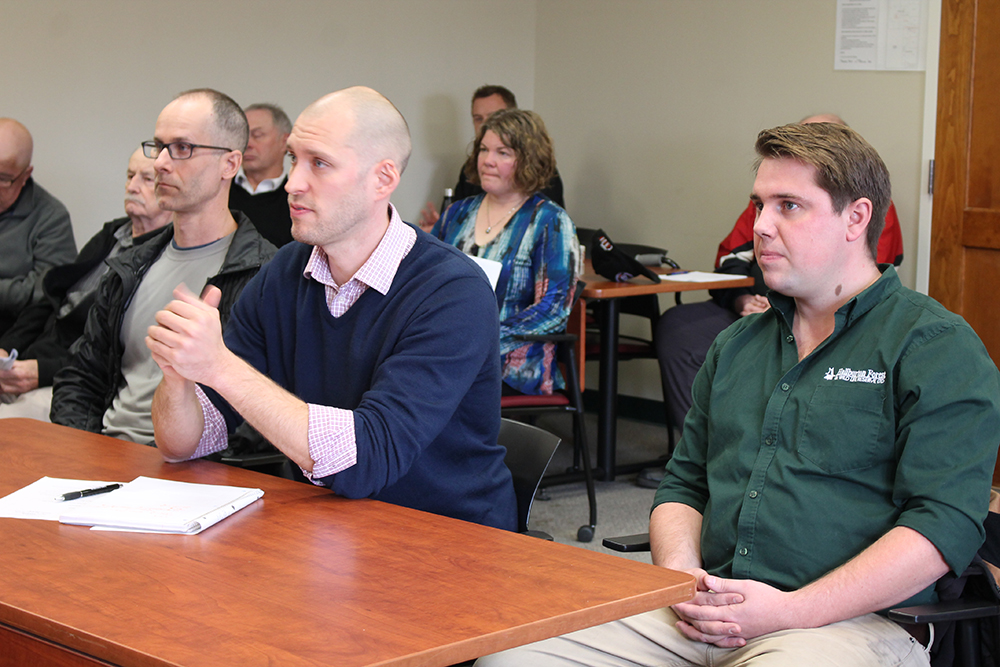Proponents of a district energy system for Haliburton were back before Dysart et al Council Tuesday hoping to repower their plans via an Investing in Canada Infrastructure Program (ICIP) grant.
Jamie Stephen, the managing director of TorchLight Bioresources, Mike Rutter, of BioThermic, and Malcolm Cockwell, managing director of Haliburton Forest, spoke at the Nov. 26 meeting.
They’re the same three who helped Dysart et al council secure a $2.8 million Municipal Greenhouse Gas Challenge fund grant for a $5.8 million project in 2018, only to have the money clawed back after Doug Ford was elected.
Their pitch is for a larger project – estimated at $15-20 million in capital costs, that would see the heating system go into homes, not just businesses and institutions.
“A grant needs to be secured in order to restart this project,” Stephen said.
The system involves using wood chips to heat water via a boiler and then piping it into homes, institutions and businesses.
Stephen said it’s a proven system in Europe although relatively new to Canada and North America.
Not only has the provincial government changed since Stephen, Rutter and Cockwell came to council in 2017 and 2018. The council has also changed with a mayor, Andrea Roberts, and deputy mayor Patrick Kennedy as well as new councillors. Nothing has happened with the project since August 2018.
To restart the process, Stephen reiterated that “we believe municipal partnership is essential” and “right now, the best option is the ICIP.”
Under the ICIP, the federal and provincial governments will chip in 73.3 per cent of the cost of approved projects, leaving municipalities to finance 26.7 per cent. However, Stephen stipulated a district energy system would not cost the township anything, with the money coming from the private sector.
Stephen said that under the ICIP, there is $2.5 billion earmarked for green stream projects.
The township is already part of the Haliburton Village Bioenergy Corporation with representation on the board. They had discussed putting an energy centre near the Dysart library and getting buy-in to heat municipal buildings and businesses.
Now, Stephen said they are talking about an expanded project involving three clusters: the downtown; the Haliburton Highlands Health Services and schools; and the Haliburton School of Art and Design. He suggested starting with HHHS and the schools to show residents the technology actually works.
He said they could then go after single family detached homes, offering them the best value to heat their homes with the greenest energy available.
He said proceeding was “a way for Haliburton to set a high bar, take the opportunity while funding is available and take leadership for your residents.”
The proponents’ ask of council was to be able to work with the CAO and mayor on an application for a Spring 2020 intake.
Roberts commented on how Dysart has wood all around it, yet people rely on heating oil in their homes.
“It makes a lot of sense,” said Coun. Larry Clarke. “Haliburton is a forestry area.” He asked Cockwell if The Forest could supply enough woodchips to meet the demand and Cockwell said they could easily accommodate a district energy system.
Kennedy wanted to know where the project fit in with council’s fiscal priorities, and wanted more details on the financials in light of competing interests. “We need another meeting on this, your honour,” he told Roberts.
The delegation was received for information purposes only. More information is expected to come back for council’s December meeting.





